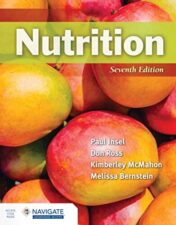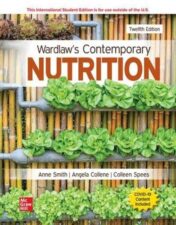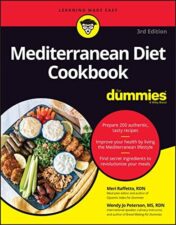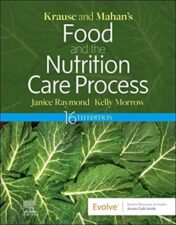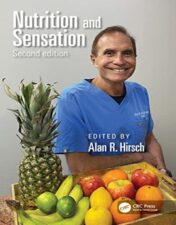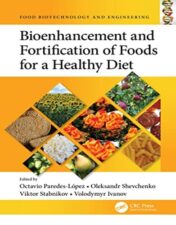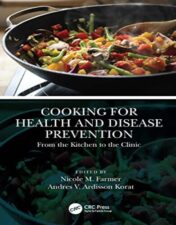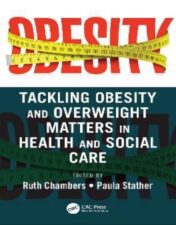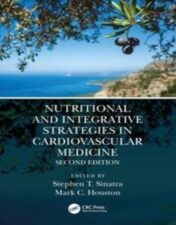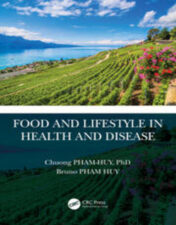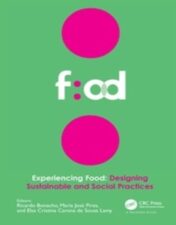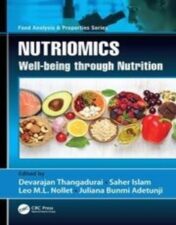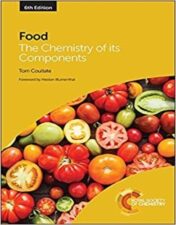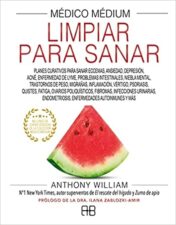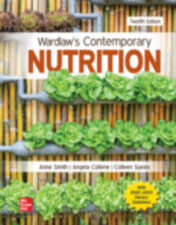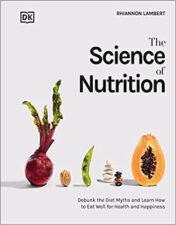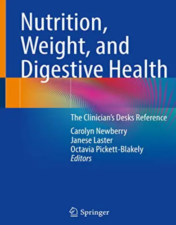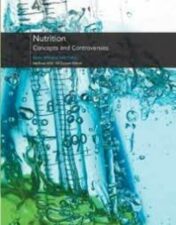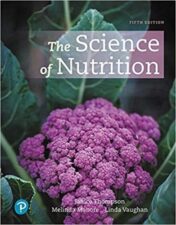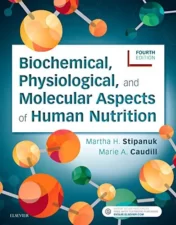Unlock the Secrets of Nutrition and Dietetics with These Must-Read Books
Start Your Journey to a Healthier You with Nutrition Dietetics Books!
Are you looking for ways to improve your health and nutrition? Nutrition dietetics books can help you learn about the science of food and how it affects your body. With the right information, you can make better decisions about what to eat and how to stay healthy. Nutrition dietetics books provide an in-depth look at the science behind food and nutrition. They cover topics such as macronutrients, vitamins and minerals, and how they affect your body. You’ll also learn about the different types of diets and how to create a balanced meal plan that works for you. Plus, you’ll get tips on how to make healthier choices when it comes to food. If you’re ready to take control of your health and nutrition, check out our selection of nutrition dietetics books. We have a wide range of titles from leading experts in the field. Whether you’re just starting out or looking to deepen your knowledge, we have something for everyone. Start your journey to a healthier you today by exploring our selection of nutrition dietetics books. Visit SurgeryBook.net to find the perfect book for you!
Nutrition Dietetics Books
Plant based Nutrition in Clinical Practice 2022 Epub+converted pdf
Nutrition Dietetics Books
Nutrition Dietetics Books
Wardlaw’s Contemporary Nutrition, 12th edition 2021 Original PDF
Nutrition Dietetics Books
Mediterranean Diet Cookbook For Dummies, 3rd Edition 2022 Original PDF
Nutrition Dietetics Books
Krause and Mahan’s Food and the Nutrition Care Process, 16th edition 2022 Original PDF
Nutrition Dietetics Books
Nutrition Dietetics Books
Nutrition and Sensation, 2nd Edition 2022 epub+converted pdf
Nutrition Dietetics Books
Alimentation de l’enfant et de l’adolescent (French) 2022 Original PDF
Nutrition Dietetics Books
Nutrition Dietetics Books
Cooking for Health and Disease Prevention: From the Kitchen to the Clinic 2022 Original PDF
Nutrition Dietetics Books
Cooking for Health and Disease Prevention: From the Kitchen to the Clinic 2022 Epub+ converted pdf
Nutrition Dietetics Books
Tackling Obesity and Overweight Matters in Health and Social Care 2022 Original PDF
Nutrition Dietetics Books
Nutritional and Integrative Strategies in Cardiovascular Medicine 2022 Original pdf
Nutrition Dietetics Books
Nutrition Dietetics Books
Transforming Food Environments 1st edition 2022 Original pdf
Nutrition Dietetics Books
Nutrition Dietetics Books
Probiotics for Human Nutrition in Health and Disease 1st Edition 2022 Original pdf
Nutrition Dietetics Books
Food: The Chemistry of its Components (6th Edition) 2015 Epub + Converted Pdf
Nutrition Dietetics Books
Wardlaw’s Contemporary Nutrition, 12th Edition 2022 Epub+Converted pdf
Nutrition Dietetics Books
Nutrition Dietetics Books
Nutrition, Weight, and Digestive Health: The Clinician’s Desk Reference 2022 Original PDF
Nutrition Dietetics Books
Nutrition Dietetics Books
Nutritional and Integrative Strategies in Cardiovascular Medicine 2021 Original PDF
Nutrition Dietetics Books
Nutrition Dietetics Books
Biochemical, Physiological, and Molecular Aspects of Human Nutrition, 4e 2019 EPUB & converted pdf
Nutrition Dietetics Books
Introduction
Are you looking to unlock the secrets of nutrition and dietetics? With these must-read books, you can gain a better understanding of how to make healthy food choices and develop a balanced diet. From cookbooks to nutrition guides, these books provide valuable insight into the world of nutrition and dietetics. Learn about the science behind food, the importance of vitamins and minerals, and how to create a meal plan that works for you. With these must-read books, you can become an expert in nutrition and dietetics.
The Basics of Nutrition and Dietetics: A Comprehensive Guide to Understanding the Science Behind Healthy Eating
The Basics of Nutrition and Dietetics: A Comprehensive Guide to Understanding the Science Behind Healthy Eating is an essential resource for anyone looking to learn more about nutrition and dietetics. This comprehensive guide provides a thorough overview of the science behind healthy eating, from the basics of nutrition to the latest research on dietary trends.
The book begins by introducing readers to the fundamentals of nutrition, including macronutrients, micronutrients, and their roles in the body. It then dives into the different types of diets, such as vegetarian, vegan, and paleo, and explains how each one works. The book also covers topics like food labels, portion sizes, and meal planning.
In addition to providing an overview of nutrition and dietetics, this book also offers practical advice on how to make healthier choices. It includes tips on how to read food labels, how to choose nutrient-dense foods, and how to create balanced meals. It also provides information on how to make lifestyle changes that can improve overall health.
The Basics of Nutrition and Dietetics: A Comprehensive Guide to Understanding the Science Behind Healthy Eating is an invaluable resource for anyone looking to learn more about nutrition and dietetics. With its comprehensive coverage of the science behind healthy eating, this book is sure to be a valuable asset to anyone looking to make informed decisions about their diet and health.
Unlocking the Power of Superfoods: How to Incorporate Nutrient-Rich Foods into Your Diet
Unlocking the Power of Superfoods: How to Incorporate Nutrient-Rich Foods into Your Diet is a comprehensive guide to understanding and incorporating nutrient-rich superfoods into your diet. This book provides an in-depth look at the science behind superfoods, their health benefits, and how to incorporate them into your daily meals.
The book begins by introducing readers to the concept of superfoods and their importance in maintaining a healthy lifestyle. It explains the various types of superfoods, including fruits, vegetables, nuts, seeds, grains, legumes, and more. It also discusses the nutritional value of each type of food and how they can be used to create balanced meals.
The book then dives into the science behind superfoods, exploring the different vitamins, minerals, antioxidants, and other nutrients that make them so beneficial for our health. It explains how these nutrients work together to provide us with energy, support our immune system, and protect us from disease.
The book also provides practical advice on how to incorporate superfoods into your diet. It offers tips on meal planning, shopping for superfoods, and preparing them in delicious and nutritious recipes. It also includes a variety of meal ideas and recipes that are easy to make and full of flavor.
Finally, the book provides guidance on how to maintain a healthy lifestyle while incorporating superfoods into your diet. It covers topics such as exercise, stress management, and sleep hygiene. It also provides information on how to find reliable sources of superfoods and how to store them properly.
Unlocking the Power of Superfoods: How to Incorporate Nutrient-Rich Foods into Your Diet is an essential resource for anyone looking to improve their health and wellbeing through the power of superfoods. With its comprehensive coverage of the science behind superfoods, practical advice on incorporating them into your diet, and helpful tips on maintaining a healthy lifestyle, this book is sure to help you unlock the power of superfoods and reap the rewards of a healthier life.
The Art of Meal Planning: Strategies for Creating Balanced Meals That Taste Great
The Art of Meal Planning: Strategies for Creating Balanced Meals That Taste Great is a comprehensive guide to creating delicious, nutritious meals that are easy to prepare and enjoyable to eat. This book provides readers with the tools they need to plan meals that are both healthy and delicious. It covers topics such as how to create balanced meals, how to choose healthy ingredients, and how to make meal planning easier.
The book begins by discussing the importance of meal planning and how it can help you save time and money while still eating healthy. It then goes into detail about how to create balanced meals that include all the essential nutrients. It explains the different food groups and how to combine them in order to get the most nutrition out of each meal. It also provides tips on how to choose healthy ingredients and how to make meal planning easier.
The Art of Meal Planning also includes recipes for breakfast, lunch, dinner, and snacks. Each recipe includes detailed instructions and nutritional information so you can easily create meals that are both healthy and delicious. The book also includes helpful tips on how to store and prepare food, as well as how to make sure your meals are safe to eat.
Overall, The Art of Meal Planning: Strategies for Creating Balanced Meals That Taste Great is an invaluable resource for anyone looking to create healthy, delicious meals. With its comprehensive coverage of meal planning and its easy-to-follow recipes, this book is sure to help you create meals that are both nutritious and enjoyable.
The Benefits of Intermittent Fasting: How to Maximize Weight Loss and Improve Health
Intermittent fasting is a popular dieting trend that has been gaining traction in recent years. It involves alternating periods of eating and fasting, usually over the course of a day or week. This type of dieting can be beneficial for weight loss and overall health.
The main benefit of intermittent fasting is that it helps to reduce calorie intake. By limiting the amount of time you are allowed to eat, you are naturally reducing your caloric intake. This can lead to weight loss as your body burns more calories than it takes in. Additionally, intermittent fasting can help to reduce hunger and cravings, making it easier to stick to a healthy diet.
Intermittent fasting can also have positive effects on your overall health. Studies have shown that it can help to reduce inflammation, improve insulin sensitivity, and lower cholesterol levels. It may also help to reduce the risk of certain diseases, such as heart disease and diabetes.
To maximize the benefits of intermittent fasting, it is important to follow a few simple guidelines. First, make sure to drink plenty of water throughout the day. This will help to keep you hydrated and prevent dehydration. Second, try to stick to a consistent eating schedule. This will help to regulate your metabolism and ensure that you are getting the most out of your fasting periods. Finally, make sure to get enough sleep each night. This will help to ensure that your body is able to rest and recover properly.
Intermittent fasting can be an effective way to lose weight and improve your overall health. However, it is important to remember that it should not be used as a replacement for a healthy diet and exercise routine. Instead, it should be used as a supplement to help you reach your goals. With the right approach, intermittent fasting can be a great tool for achieving your weight loss and health goals.
Plant-Based Diets: Exploring the Benefits of a Vegetarian or Vegan Lifestyle
A plant-based diet is one that focuses on consuming whole, unprocessed plant foods such as fruits, vegetables, legumes, nuts, and seeds. Plant-based diets are becoming increasingly popular due to their numerous health benefits. People who follow a vegetarian or vegan lifestyle may choose to do so for ethical, environmental, or health reasons.
The health benefits of a plant-based diet are numerous. Studies have shown that vegetarians and vegans tend to have lower levels of cholesterol, blood pressure, and body mass index (BMI). They also tend to have lower rates of heart disease, type 2 diabetes, and certain types of cancer. Additionally, plant-based diets are typically high in fiber, vitamins, minerals, and antioxidants, which can help protect against chronic diseases.
In addition to the health benefits, there are also environmental and ethical benefits to following a plant-based diet. Eating plant-based foods requires fewer resources than eating animal products, making it more sustainable. Additionally, many people choose to follow a vegetarian or vegan lifestyle out of respect for animals and the environment.
If you’re considering transitioning to a plant-based diet, it’s important to make sure you’re getting all the nutrients your body needs. This means eating a variety of whole, unprocessed plant foods and supplementing with vitamin B12 if necessary. It’s also important to be mindful of your calorie and protein intake, as some plant-based proteins are not as nutrient-dense as animal proteins.
Overall, a plant-based diet can offer numerous health, environmental, and ethical benefits. If you’re considering transitioning to a vegetarian or vegan lifestyle, it’s important to do your research and make sure you’re getting all the nutrients your body needs. With the right planning and preparation, a plant-based diet can be a healthy and sustainable way to eat.
Conclusion
If you're looking to unlock the secrets of nutrition and dietetics, these must-read books are a great place to start. From understanding the basics of nutrition to exploring the latest research on diet and health, these books provide an invaluable resource for anyone interested in learning more about nutrition and dietetics. With their comprehensive coverage and easy-to-understand language, these books can help you make informed decisions about your diet and lifestyle. Whether you're just starting out or already have some knowledge of nutrition and dietetics, these books will give you the tools you need to make healthy choices and achieve your goals.


